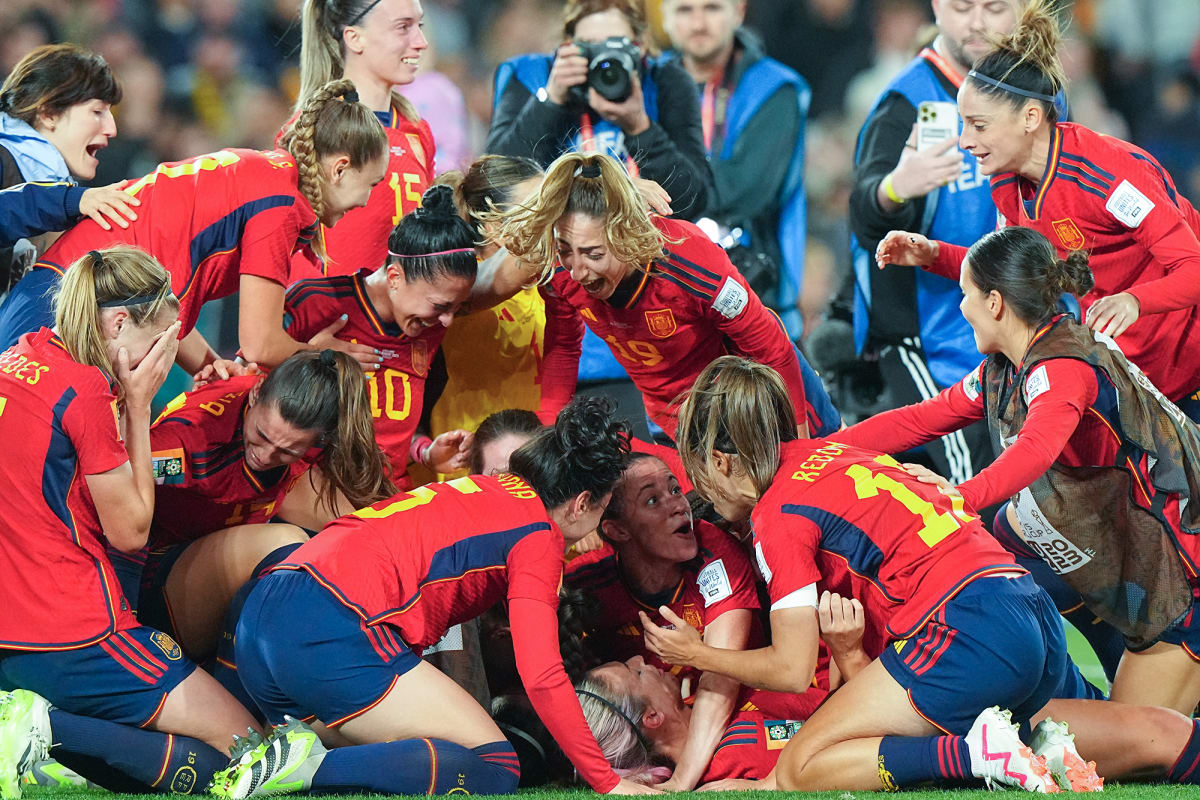It was supposed to be the greatest day in Spanish women’s soccer history. After never having advanced past the first knockout round, Spain won its first world title with a 1–0 win over England in Sydney in August, thanks to a goal from Olga Carmona.
But as Spain’s golden generation received its medals, Spanish soccer federation president Luis Rubiales grabbed forward Jenni Hermoso with both hands and kissed her on the lips with the world watching. The immediate fallout from that act turned a jubilant postmatch celebration into an international firestorm.

Erick W. Rasco/Sports Illustrated
Hermoso, the all-time Spanish women’s goalscorer, said Spanish federation officials pressured her into signing a statement saying the kiss was “a mutual gesture” before the team even left Stadium Australia. Rubiales initially refused to admit to any wrongdoing until he issued a half-hearted apology, referring to his outraged critics as “idiots” and labeling the kiss consensual. After Hermoso disputed Rubiales’s claims days later, pressure mounted on the president to resign. But Rubiales, who also served as a UEFA vice president, doubled down during a federation assembly, repeatedly yelling, “I’m not going to resign,” to tepid applause from supporters, including Spain women’s coach Jorge Vilda.
Spain’s players banded together behind the hashtag #SeAcabó (“It’s Over”), refusing to play for the country until there was a change in leadership. The #SeAcabó initiative, named after a tweet from two-time Ballon d’Or winner Alexia Putellas, gained global support, mirroring the #MeToo movement in calling for change to women’s sports and beyond. The pressure played a factor in Rubiales’s subsequent resignation and three-year ban from FIFA, as well as Spain’s decision to fire Vilda, whose controversial management was at the center of a player mutiny in 2022 calling for improved working conditions.
As Rubiales faces charges of sexual assault and coercion from Spanish prosecutors, Hermoso and Spain can finally start to look toward a new era. It comes at an unprecedented moment in women’s soccer after an otherwise iconic tournament that became the most attended Women’s World Cup and broke TV viewership records around the globe, proving that change is not on the horizon—it’s already here.







